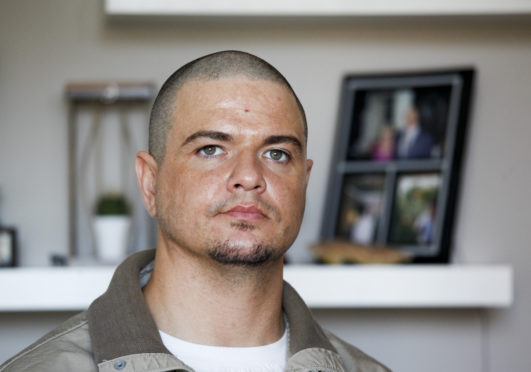
Increasing numbers of Scots are opting for a no-frills funeral due to the escalating costs of traditional send-offs.
A not-for-profit firm offering direct cremations says demand is growing for its services.
Direct cremations are simple affairs with no service at the crematorium and no family or friends present.
Superstar David Bowie had a direct cremation after his death in New York in 2016 and it is an increasingly popular option.
Glasgow-based Caledonia Cremation – a not-for-profit organisation launched last year – offers simple, direct cremations for £995 and co-founder John Halliday said business is booming.
A direct cremation reduces costs because an expensive service at a crematorium chapel is not included. The ashes of loved ones are returned to the family afterwards.
Mr Halliday said the number of direct cremations held by the company has been increasing by an average of 22% a month and it is now conducting the equivalent of three funerals per week across Scotland.
“People are fed up paying £5,000 or much more for a full-profit funeral service knowing that a lot of the money is going on sales commission and add-ons,” he said.
“There are a lot of good funeral directors out there and some are now offering direct cremation services. But, sadly, when we leave this world we are now surrounded by people on commission.
“There are a lot of families experiencing funeral poverty and there has also been a rise in crowd-funding to pay for someone’s send-off.
“We are not a cheap-and-cheerful option, though. Our model is equal for all, rich or poor.
“It is not just people who can’t afford a traditional funeral who are using our service. Many people now like the idea that we are not-for-profit.”
It was announced last week that the competition watchdog is launching an investigation into Britain’s £2 billion funeral industry.
The Competitions and Markets Authority (CMA) said funerals now typically cost between £3,000 and £5,000.
The essential cost of a funeral has increased by 6% each year for the past 14 years, it said – twice the rate of inflation.
“This appears to have made it easier for some funeral directors to charge high prices,” it said.
The CMA said cremations account for a large share of the costs and the largest crematoria operators had increased prices by 6% and 8% each year for the past eight years. Some local authorities had also raised fees considerably.
Stewart McDonald, MP for Glasgow South, welcomed the CMA probe and said the rising cost of funerals could be playing a big part in the rise of “basic, cut-price cremations”.
He has also launched a campaign asking people to contact him with their experience of “rip-off” pre-paid funeral plans, which he believes many people have been taking out because of the soaring costs of funerals.
He said: “My main concern is that, whilst very many funeral plan providers operate with very high standards, there is unfortunately little that individuals and family members can do should the worst happen and a provider goes bust or there are hidden fees that haven’t been planned for – resulting in many feeling that they have to turn to cut-price options.”
Joe’s story
When Joe Bendall’s mum Betty died, he was shocked at prices quoted to his family for a funeral.
When Betty, from Edinburgh, passed away last May aged 71, Joe was told a crematorium service would cost more than £5,000.
“The sort of money we were first quoted would have put the family in debt,” said Joe, a 38-year-old care home worker.
The family opted instead for a direct cremation, costing just £995.
Caledonia Cremation, a Glasgow company, collected Betty’s body and her ashes were returned within two weeks.
Meantime, the family gathered at Joe’s flat to mark her passing.
“It was a celebration of life,” Joe said. “Not mourning a death.”
US project develops ‘human composting’
“Human composting” could be the next eco-friendly alternative to burials and cremation.
The process involves placing human remains in a cylinder on a bed of organic material such as wood chip, alfalfa or straw.
Air is then sucked in, turning the remains into compost that can be used to grow plants.
The process has been tested by academics in the US and looks set to be legalised in the state of Washington.
Katrina Spade, the project’s engineer, said she hopes human composting will transform city warehouses into outdoor gardens where people can lay their loved ones to rest and see the body’s “journey of transformation from human to soil”.

Enjoy the convenience of having The Sunday Post delivered as a digital ePaper straight to your smartphone, tablet or computer.
Subscribe for only £5.49 a month and enjoy all the benefits of the printed paper as a digital replica.
Subscribe